Monsoon Destroys Infrastructure In Iran’s Poorest Region
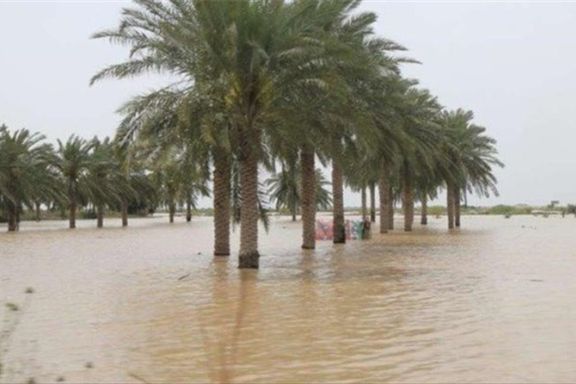
Heavy rainfall and storms in Iran’s Sistan-Baluchestan have caused a spate of flash floods, dealing a heavy blow to the infrastructure of the southeastern province.

Heavy rainfall and storms in Iran’s Sistan-Baluchestan have caused a spate of flash floods, dealing a heavy blow to the infrastructure of the southeastern province.
Recent monsoon rains in dozens of cities have led to flooding of local rivers, closure of at least 42 roads and damage to hundreds of hectares of palm groves – an important source of income in the poor and otherwise arid region.
The deluge from the Kajou River in the south of the province has been the biggest during the monsoon seasons of the last 20 years, says the governor of the city of Qasr-e Qand Hashem Zehi. Last summer, monsoon rains and floods wreaked havoc in many provinces, with dozens dead or missing, amid the worst annual drought in recent memory.
Ghanbar Narui, an agricultural official in the district of Fanouj, said Sunday that 900 palm trees with dates have been uprooted, leading to a heavy loss in the date harvest in 350 hectares of palm groves in the region. The livelihood of the residents depends on the date trade. According to the official, Fanouj has a total of 2,300 hectares of palm groves, out of which 1,900 hectares produce dates.
Sistan and Baluchestan is the poorest province of Iran with a population of around 4 million, including 700,000 Afghan nationals.
During the past years, this region has experienced many crises, including shortage of fuel, bread, and drinking water, as well as drought, widespread unemployment and increasing poverty.
In the recent popular protests following the death in custody of Mahsa Amini, around 120 civilians were killed by security forces in the province, the highest number of victims among 31 provinces.
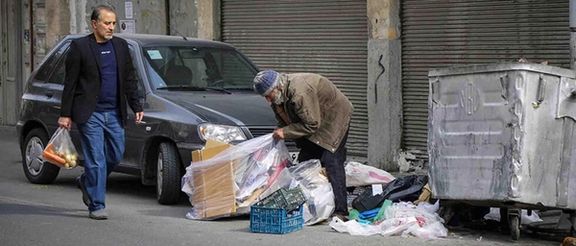
Iranian lawmaker Gholamreza Nouri Ghezeljeh has warned that Iran’s economic situation is alarming, and the people have been struggling in recent years to survive.
Ghezeljeh told reporters in Tehran that the economic crisis is the outcome of inaction by parliament over the country’s development plans. This comes while some experts say funds allocated to development plans are often spent on propaganda or military projects.
The lawmaker also attributed part of the problem to the fact that Iranian officials including presidents lack long-term vision. For the same reason, he said, only 30 percent of six development plans since the establishment of the Islamic Republic have been implemented.
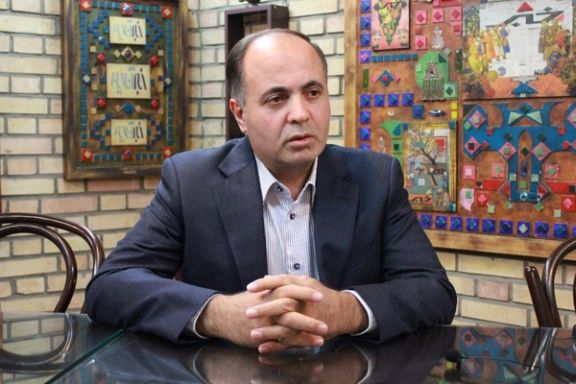
Meanwhile, another Iranian lawmaker, Alireza Mobaleghi, said in an unprecedented statement on Thursday that officials, including members of parliament, are ashamed and embarrassed for the difficult economic situation and have no convincing answers to the people’s grievances.
He added that the embarrassment is more serious for those like him who represent the people in the underprivileged parts of the country like his constituency in Kouhdasht in southwest Iran.
Iran’s struggling economy has faced a worsening crisis since 2018 when the United States withdrew from the JCPOA nuclear accord and imposed sanctions. Annual inflation is above 50 percent and ordinary salaries are less than half of what families need for basic necessities.
But no politician within the regime dares to criticize Supreme Leader Ali Khamenei who is the top decision maker in matters of security and foreign policy and ultimately responsible for policies that have isolated the country.
The lawmaker further charged that some government managers and decision makers are not efficient enough for their jobs and that is what causes part of the problem. There are individuals who might be good speakers and know a lot of theories, but they cannot do their job necessarily.
“There is no justification for using such individuals in the government although some of them might have good academic credentials,” he said. He added that Iran is involved in a full-fledged economic war, and it needs highly capable officials.
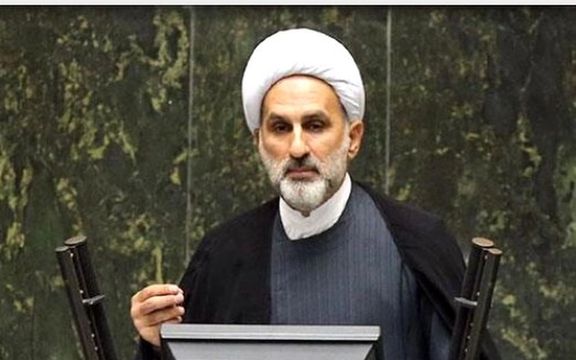
Mobaleghi maintained that some members of parliament have presented serious demands to the government to change its senior and mid-ranking managers in a bid to improve the country’s situation. He further warned that the parliament might consider impeaching some of Iran’s cabinet ministers.
Despite the problems, some hardliner lawmakers such as Fereidoun Abbasi do not seem to take the issue seriously. Abbasi said on Thursday, “Iranians are potentially rich, but if their wealth does not positively impact the country’s economy, that is not the government’s fault. It is something to do with the ongoing economic war.”
Economic war is Iranian officials’ jargon for US sanctions against the Islamic Republic government.
In fact, nepotism, corruption and political considerations play a vital role in the economy, which is mostly controlled by the government. Conditions for private investments are not encouraging and many have taken their capital abroad. Official statements show that tens of billions of dollars have been taken out in the past decade.
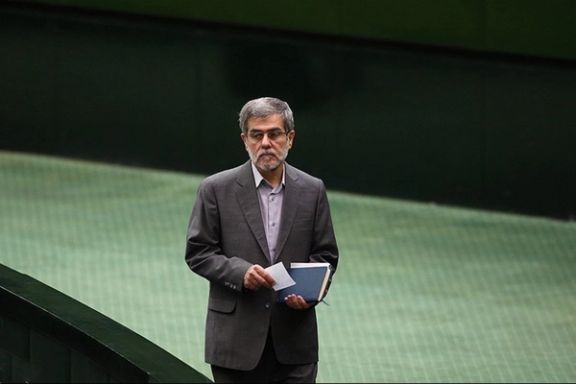
Abbasi charged that “the lawmakers who speak about economic shortcomings in their constituencies and state that the people are poor and underprivileged are simply trying to justify their inaction.
The hardliner politician added, “Instead of highlighting the country’s problems, lawmakers should strive to solve them,” shifting the blame from systemic problems to members of parliament.
Meanwhile, in an interview with Khabar Online website, Labor market Expert Hamid Haj Esmaili criticized government officials for providing false statistics to the media to pretend that they have tackled problems such as unemployment and inflation. He said there are serious conflicts between the figures presented by state officials and statistics worked out by specialised agencies.
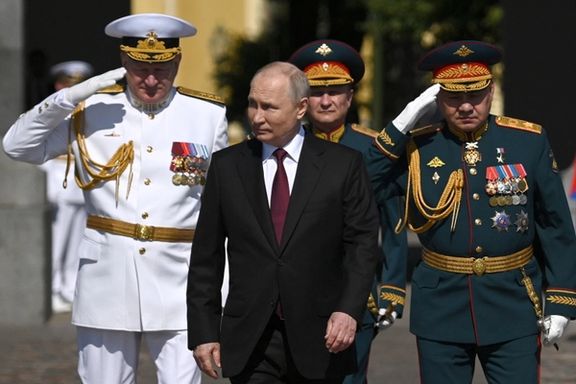
Iran’s navy commander Admiral Shahram Irani took part in Russia’s annual Navy Day ceremonies where President Vladimir Putin reviewed a parade of warships.
Adm. Irani is the commander of the traditional navy as distinct from the Revolutionary Guard’s naval forces. The Iranian gesture showed that Tehran is the only solid ally for Moscow amid the invasion of Ukraine.
Iran has delivered hundreds of Kamikaze drones to Russia since mid-2022 that have been extensively used to target cities and infrastructures. European powers and the United States have warned Iran to stop the deliveries and refrain from supplying other weapons. Russia reportedly is seeking Iranian ballistic missiles.
Forty-five ships, submarines and other vessels took part in Russia's annual Navy Day event, a traditional show of military might which takes place in the Gulf of Finland and on the River Neva in St Petersburg. Around 3,000 navy personnel also took part in a parade on land, the Kremlin said.
However, the Russian and Iranian navies are from being able to challenge Western, especially the American navy. The IRGC navy harasses commercial vessels in the Persian Gulf occasionally, but lately the United States has boosted its naval and air power in the region to deter Tehran.
Iran has been negotiating with Western powers over its controversial nuclear program since April 2021, but has refused a compromise draft agreement submitted by the European Union negotiators last August. Since then, it has intensified its military and political cooperations with Russia.
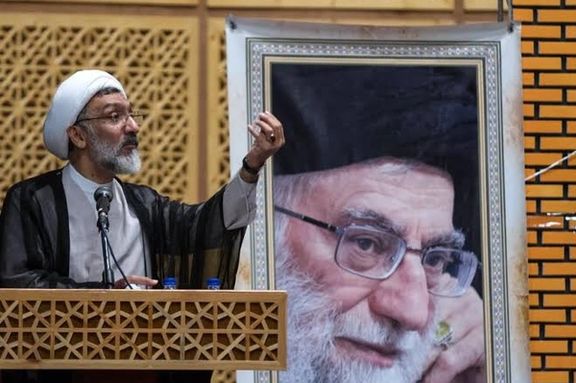
Iran’s former deputy intelligence minister, a conservative cleric, has told a hardliner website in Tehran that the people are dissatisfied, and this could lead to voter apathy.
Mostafa Pourmohammadi, who served as interior minister and justice minister in two different administrations, expressed his concern on Saturday regarding the upcoming March 2024 parliamentary elections. Speaking to Javan newspaper, an outlet affiliated with Iran's Revolutionary Guard, Pourmohammadi highlighted the issue of "low satisfaction" among the people, which he believes could lead to voter apathy.
Iranian conservatives have been grudgingly acknowledging that the economic crisis gripping Iran for the past five years has worsened under hardliner president Ebrahim Raisi and as a result the regime’s legitimacy might suffer.
The country witnessed significant anti-government protests between September 2022 and early 2023, reflecting a surge of anger at both political repression and escalating poverty. Even Supreme Leader Ali Khamenei faced derogatory slogans from protesters on the streets and university campuses, indicating the widespread discontent.
“People themselves should be interested to participate in the elections, and this depends on the level of their satisfaction…We must analyze the situation realistically. Today, popular satisfaction has declined, and many government entities are responsible,” Pourmohammadi stated. However, he only singled out the Raisi administration and did not mention other centers of power.
The former intelligence minister also warned that “The young generation has distanced itself from us.” He underlined that “Low [election] turnout is a defeat for all of us,” referring to groups and individuals who support the Islamic Republic.
Security forces killed more than 500 civilians in the 2022-2023 protests and arrested more than 20,000. Hundreds received permanent injuries, including young people who lost one or both eyes to shotgun pellets fired by security forces. The harsh government reaction further eroded the public’s tolerance toward the regime.
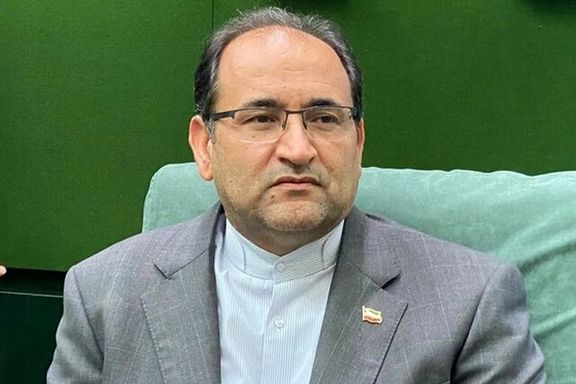
A member of the Iranian parliament says the country’s hardliners are “the most worthless creatures” that ever existed in the world.
Jalil Rahimi Jahanabadi’s comments come following harsh criticism from regime supporters after he criticized the internal exile sentence against journalist Marzieh Mahmoudi to Torbat-e Jam, a city in the northeast.
Jahanabadi, representing the people of Torbat-e Jam in parliament, spoke out against the decision and expressed his disdain for those who filed the complaint that led to her sentencing.
After the ultraconservatives attacked him, Jahanabadi tweeted on Saturday that "You hardliners are the most useless creatures in the world, and people do not even give a damn about you."
Hamid Rasaei a hardline cleric had complained to the court against the journalist. In another tweet, Jahanabadi expressed surprise at the ruling and criticized the basis of the complaint, stating, "A strange ruling was announced in the news, and a female journalist was sentenced to be exiled to Torbat-e Jam due to a complaint by a cleric…We prefer to be in exile for the rest of our lives but not to agree with the likes of Rasaei."
However, his remarks subjected him to verbal attacks from supporters of the regime on social media platforms.
The initial dispute arose when Rasaei, former member of Parliament, made highly offensive remarks about protesters. Marzieh Mahmoudi, in response, criticized him in a post on her own social media page, which subsequently led to Rasaei’s complaint against her.

Amid the ongoing economic crisis in Iran, politicians and officials are making contradictory statements regarding the reported decrease in food consumption.
While some have expressed concerns over people’s reduced purchasing power, the vice president rejected these claims as “baseless”.
Ayub Fasahat, CEO of the Fruit and Vegetable Markets of Tehran Municipality, revealed on Friday the profound impact of the government decision in May 2022 to slash food import subsidies. Fasahat stated, "People's purchasing power has decreased drastically, and the consumption of dairy products in the country has declined between 28 to 30 percent."
However, Mohammad Hosseini, the parliamentary liaison of President Ebrahim Raisi, challenged such statements, highlighting the need for evidence-based claims. Hosseini remarked, "Some time ago, one of the MPs said that thousands of people are killed on the roads every day, or some say that inflation is 120%. What is the basis?"
Supporting Fasahat's concerns, the Ecoiran website quoted a Central Bank source in April saying that the annual inflation rate surged to 68.7 percent.
The depreciation of the Iranian rial, which halved in value in the past year, further exacerbates inflationary pressures. One year ago, the rial was trading at around 300,000 per US dollar, while currently it stands at 490,000. This depreciation tells the story of the impact of inflation on Iran's economy, as imports become more expensive.
The economic crisis has exacerbated social discontent, particularly among the younger generation. While large-scale anti-regime protests in 2022 were primarily driven by social and political oppression, the current economic challenges are contributing to mounting popular frustration.